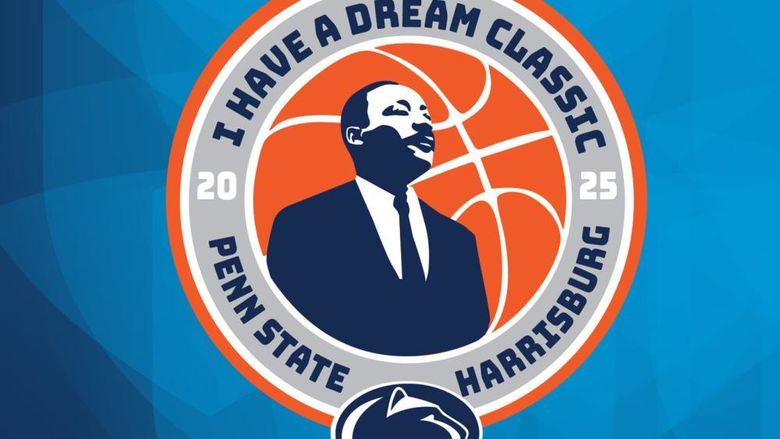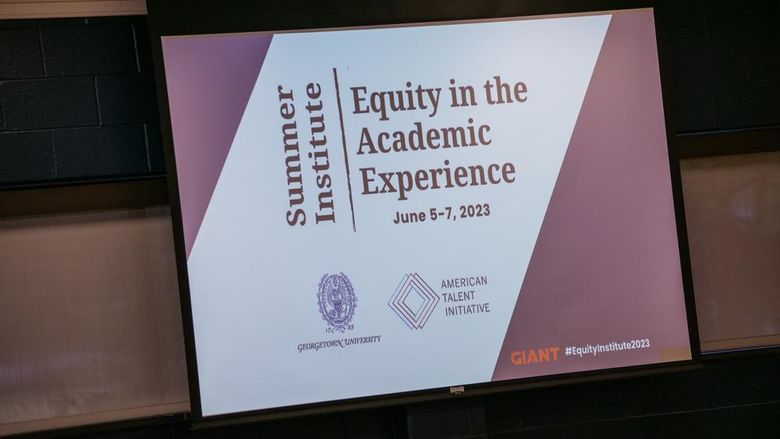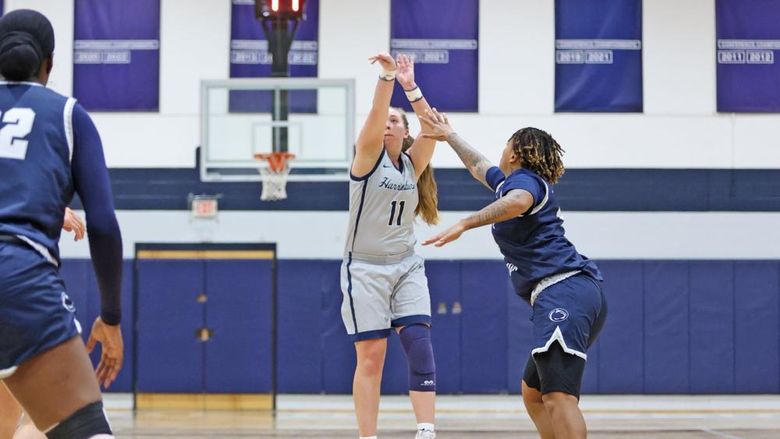
Former Penn State and NFL football player John Urschel discusses his love of math during a recent visit to Penn State Harrisburg.
HARRISBURG, Pa. — During the same time period John Urschel was launching his 300-lb. brawn against opposing teams as an offensive lineman for the Baltimore Ravens, he was publishing papers on such topics as “Laplacian Eigenvalues in Graph Disaggregation” while pursuing his doctorate in mathematics at MIT.
It’s an unlikely combination. Urschel managed to juggle both positions simultaneously for several years. But he surprised the sports world when he announced his retirement in July of this year in order to devote his time to math.
While he spoke fondly of his years with the NFL, he was poetic when he spoke about mathematics.
“Math is beautiful. It explains the way the world works,” he said. “It's a language that describes nearly everything ... Math asks why something is true, then asks to prove it.”
So for Urschel, the decision to leave football was difficult but made sense. Not everybody sees it that way. The world treats sports figures far differently than it treats top academic achievers, he said.
When he was in high school and said he wanted to play football, everyone understood.
“You don’t have to explain that to anyone,” he said. “Thousands of boys want that. Football is cool. You see how it is treated in movies, by your friends, by your fathers. It’s athletics, action, competition. But nobody talks about who won the Fields Medal, the highest award in mathematics.”
His high school coaches kept pushing him, telling him he could someday play for the NFL, even though at that time he was undersized for an offensive lineman.
“The odds of a high school football player reaching the NFL were so small, it seemed foolish for them to encourage me,” he said. “But my high school coaches convinced me that if I worked hard, my efforts would pay off.”
That was different on the academic side. While Urschel excelled in the classroom, “not one of my teachers told me I could be a mathematician, that I could chase becoming the next Einstein,” he said.
He started at Penn State as an engineering major, because his mother wanted him to become a rocket scientist, but he soon realized that mathematics was his passion. Aside from earning a 4.0 grade point average at Penn State, he also won athletic awards, including the Campbell Trophy, known as the “Academic Heisman,” and the Sullivan Award for the most outstanding athlete in the U.S. based on the qualities of leadership, character and sportsmanship.
Following his college career, he was recruited by the Baltimore Ravens as a fifth-round pick in the NFL draft. He was in contention to be their starting center when he decided to focus his attention elsewhere.
In his statement on his retirement, he said, “I’m extremely grateful to the Ravens, and blessed to have been able to play the game I love at the highest level.”
He was asked at the Penn State lecture whether the evidence of brain damage among NFL players led to his decision. While he did not reply directly, he talked about a concussion he received playing football. While he was back on the field in three weeks, it took longer for his math acuity to return, he said.
Urschel said he “breathes mathematics,” but he understands not everyone feels the same way. He believes a good math education is important for everyone, however — to balance budgets, figure mortgage interest, understand statistics, analyze risks — in general, to be able to use logic to make good decisions.
He has been active in encouraging math education, and was brought to Penn State Harrisburg through the college’s Student Activity Funds and the Central Pennsylvania Mathematics Content and Coaching Project in the college’s School of Behavioral Sciences and Education. The project brings together teacher education faculty at the college with school teachers in the region, with the goal of improving mathematics teaching skills.
While football and math might not seem to have much in common, they both taught Urschel resiliency, mental toughness, discipline and flexibility in thought, he said.
“Math is difficult, but I have learned to embrace the difficulty,” he said. “The rewards are pretty much the result of the difficulty ... Math is a thrilling search for knowledge, and what is cooler than that?”





